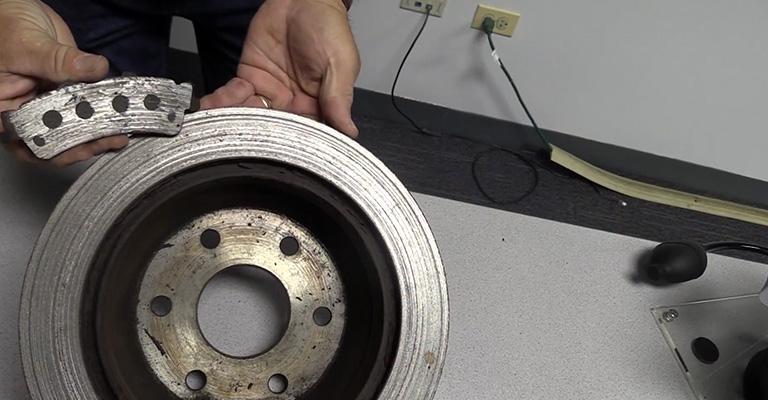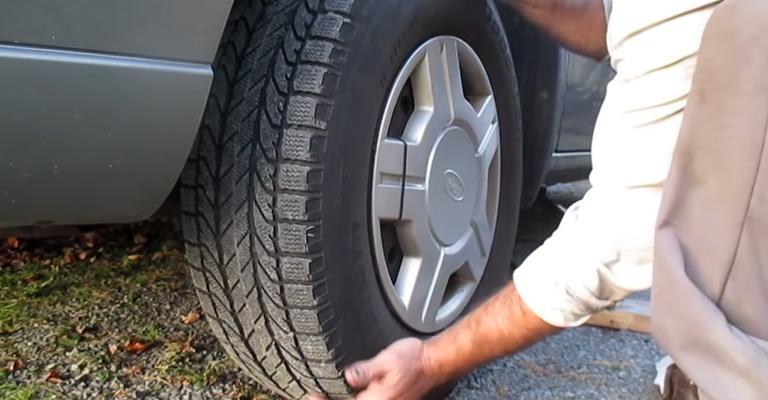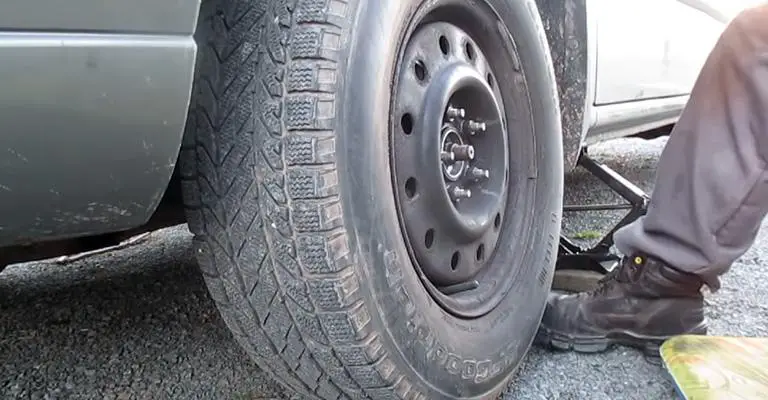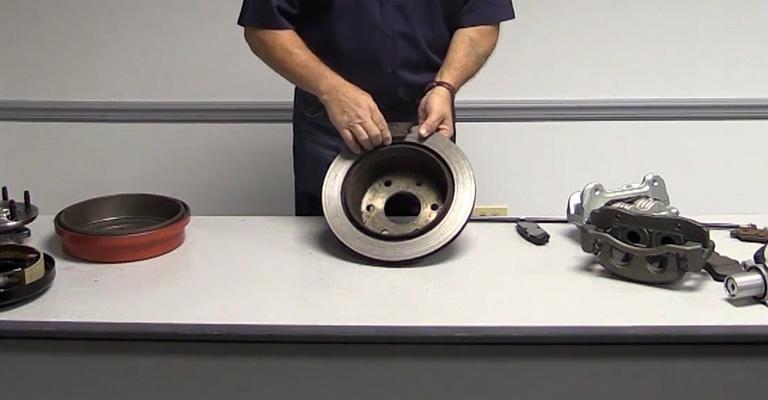When the brake pads wear out, the metal backing plates get exposed and rub against the metal rotor. When the brake pedal is pressed, it creates a low-pitched grinding noise which is referred to as brakes being “metal to metal”.
Contents
What Does It Mean When Brakes Are Metal to Metal?
“Metal to metal” refers to the brake pads being worn out to the point of exposing the metal backing plates. As a result, the metal backing plate rubs the rotor, which is also made of metal. This creates a low-pitched grinding noise. The noise is an indication of your brake system being out of shape and requiring repair.
When your brakes are nearing “metal to metal”, it is strongly advised that your brake system gets an extensive repair. Continuing to drive in that condition will lead to disastrous results. The more time you pass overlooking the issue, the more cost you will have to bear later.

Reason Behind
The reason behind this “metal to metal” noise is simple. You have been using your vehicle for a long time without providing proper maintenance for your braking system.
You have worn out your brake pads to the point of exposing the metal backing plates, and now the two metals are rubbing against each other, creating the grinding noise. However, grinding noise from new brake pads can also be heard.
Not only does this endangers your life on roads, but also damages the other valuable parts of your braking system, such as rotors and calipers. Therefore, neglecting this issue is by no means, permissible.
How “Metal to Metal” Affects the Stopping Power
To understand how the “metal to metal” scenario occurs, you have to understand how the brake system works. When you press down the brake pedal to put a stop to your vehicle, brake fuel is sent to the metal calipers.
This causes the calipers to squeeze the brake pads. Then the brake pads press against the brake rotors. The resulting friction between the pads and the rotors causes the wheels to slow down.
With the lack of caution in this regard, the brake pads wear out and expose the metal backing plates. This allows the rotors and metals to rub against each other and causes the grinding noise. The sound is very much unnerving, but the problem does not stay at that. Soon it will damage your rotor, the brake responsiveness will deter, and lead to brake failure.
Metal on Metal Sound When Driving
During driving, you will not hear any noticeable sound that could be caused due to your brake pads wearing out. The problem will come to the surface when you press the brake pedal. Your vehicle’s disc brake pads and drum brake shoes are the biggest contributors to the “metal on metal” sound.
Certain grinding sounds occur when your brake linings have worn away. As a result, when you drive and occasionally hit the brake pedal, the brake rotor will rub against the metal brake pad backing. Thus, metal-to-metal contact is created and the grinding noise surfaces.

Metal on Metal Sound Effect
Grinding noises are commonly associated with rotating parts of the vehicle. The resultant sound is the biggest symptom when your vehicle goes “metal to metal”. You will hear a very noticeable, low-pitched grinding noise each time your press down on the brake pedal.
With the sound, vibration is accompanied to the steering wheel. If the vehicle happens to run at low speeds and slow stops, the sound persists even more.

Metal on Metal Brakes Cost
When your brake system gives off that “metal on metal” sound, you must haste on replacing the brake pads. In the meantime, you must also check your rotor condition. Depending on the scenario, you might have to replace both. The replacement cost of brake pads varies with the type of vehicle.
In general, it costs around $150 per axle for the replacement of brake pads. The cost can spike up to $300 depending on the pad material. The pads made from organic materials are the least expensive ones. The expensive ones are composite and made of incorporated metal.
How Long Can You Drive With Metal on Metal Brakes?
The fact is, you can drive with metal on metal brakes for a while. But there is a catch. How long you can drive depends mostly on the severity of the damage to the brake pads.
You can err on the side of caution and drive with low speeds so that there isn’t much pressure on your brake pads. Make sure there is enough space between you and the car in front.
However, this is not recommended. Grinding brakes may work sometimes when the damage is not severe. But driving in this situation will only make things worse. You must let go of the temptation of driving like that and immediately look for a replacement.

Frequently Asked Questions
Q: How many miles do brake pads last?
Ans: Typically, brake pads should last about 25,000 to 60,000 miles depending on the material. However, 40,000 is the general mileage to keep in mind when you are going to plan for maintenance.
Q: Do I need to replace all four brake pads at once?
Ans: Normally, both front or rear brake pads wear out at the same time. Therefore, you must replace both front or rear brake pads at the same time. Unless something is up, one brake pad should wear out at the same rate as the other.
Conclusion
As you have already figured out, the metal-on-metal sound is usually a signal of unforeseen danger. Whenever you happen to come across such grinding sounds, it’s better not to drive before taking the proper measures. You will get the idea of why such sounds occur in the first place from this article and subsequently take the necessary steps.
